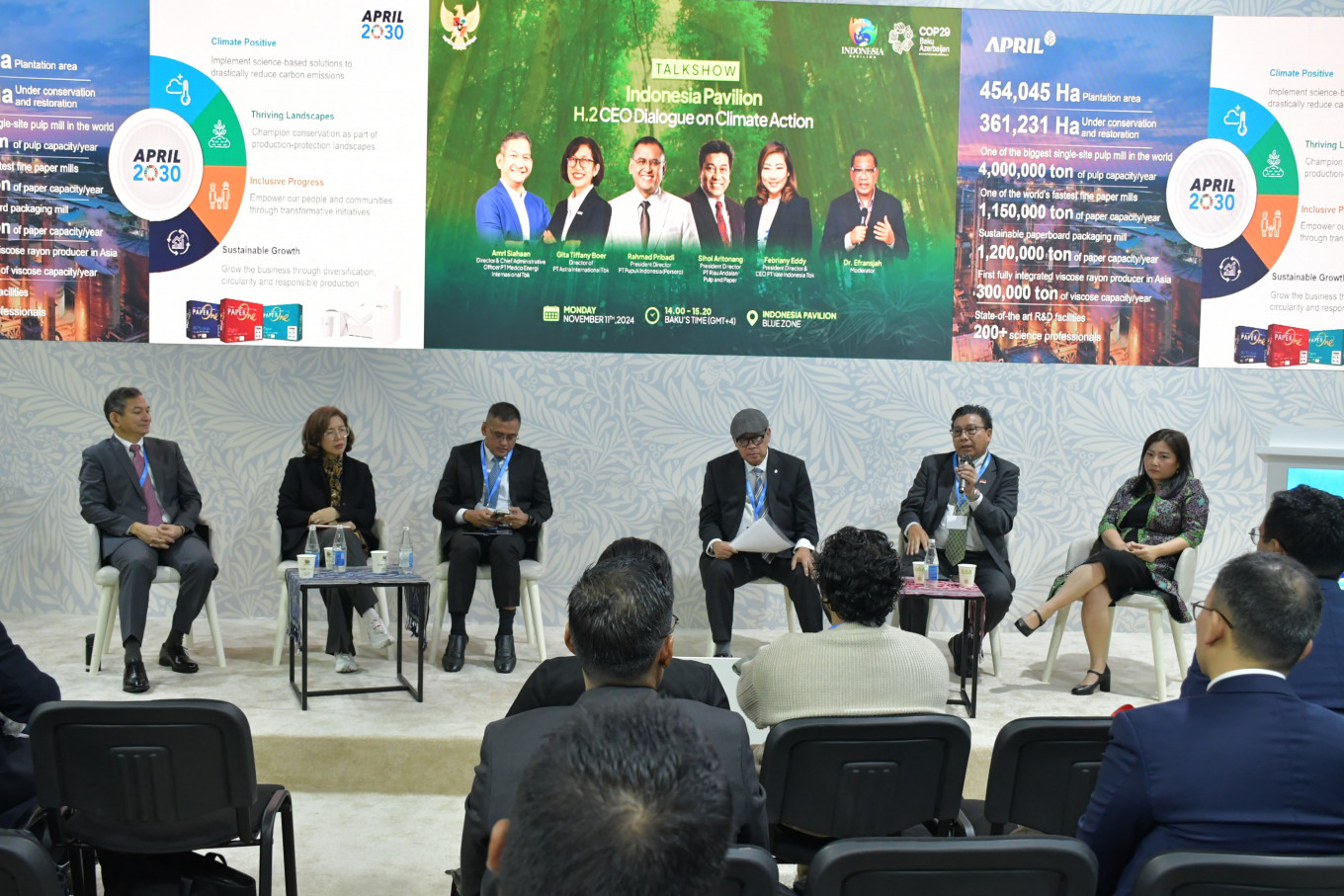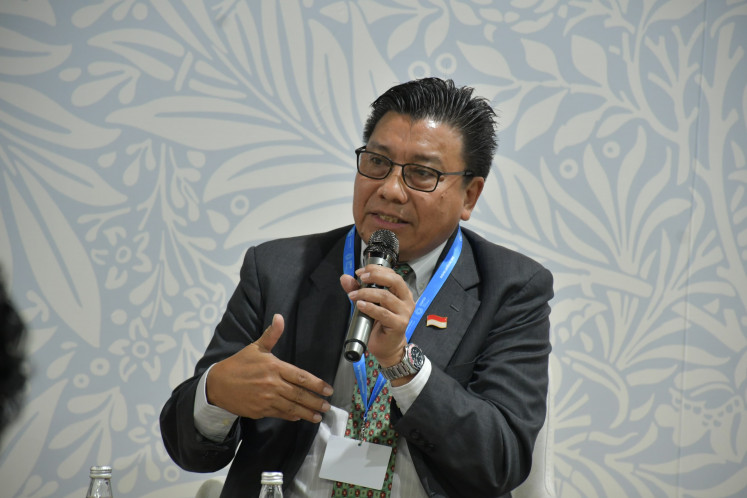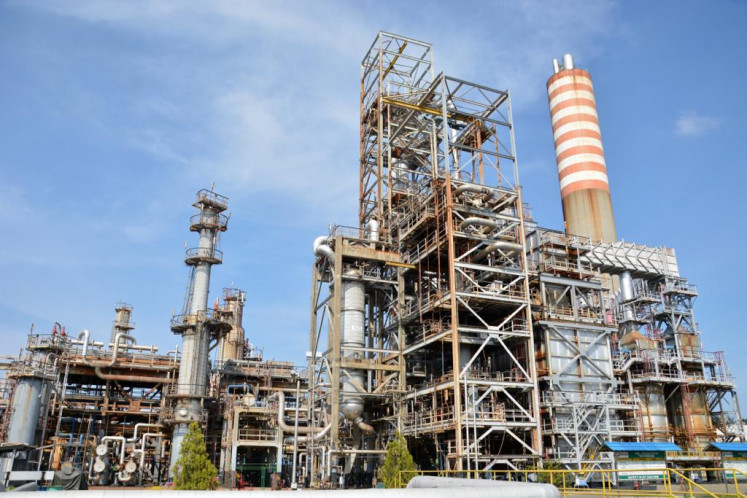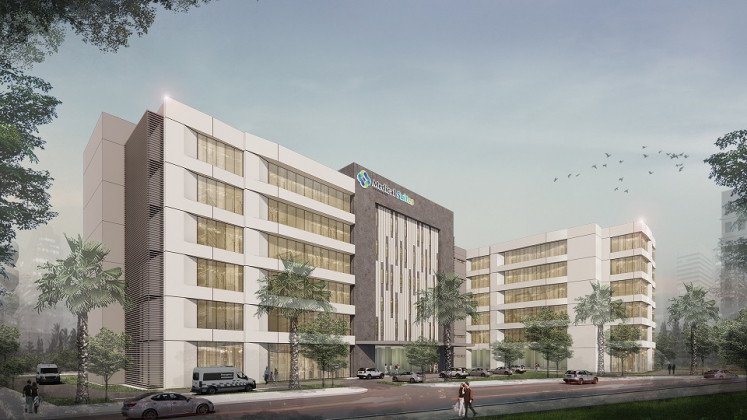Popular Reads
Top Results
Can't find what you're looking for?
View all search resultsPopular Reads
Top Results
Can't find what you're looking for?
View all search resultsAPRIL Group underlines commitment to sustainable production, forest management at COP29
Change text size
Gift Premium Articles
to Anyone
R
iau-based sustainable pulp and paper producer APRIL Group has reaffirmed its commitment to sustainable production and forest management at the 29th United Nations Climate Change Conference (COP29) in Baku, Azerbaijan.
Speaking in a session titled “CEO Dialogue on Climate Action” at the Indonesia Pavilion on Monday, Sihol Aritonang, President Director of APRIL Group’s operating arm PT Riau Andalan Pulp and Paper, highlighted the company’s production-protection approach, where it invests some its profits back into conservation projects in its industrial forest concessions.
APRIL Group, one of the largest integrated manufacturing operations in the pulp and paper sector with an annual pulp capacity of 4 million tons, occupies a plantation area of 454,045 hectares. To date, it is currently protecting and conserving approximately 361,231 hectares of forests.
“We are 80 percent in meeting our one-for-one commitment, so we are still searching for land. Not for us to plant acacia or eucalyptus, but to conserve as natural forests,” he said.
The conservation area, he continues, is also home to a thriving ecosystem of flora and fauna. Its internal Restorasi Ekosistem Riau (RER) initiative, Sumatra’s largest restoration project located on the Kampar peninsula, recorded a total of 896 species as of June 2024, with 13 species listed as Critically Endangered by the IUCN.
The RER along with APRIL Group’s other projects are part of its APRIL2030 sustainability commitment. Launched in 2020 with an end goal of 2030, the commitment consists of four pillars: Climate Positive, to deliberately reduce carbon emissions in manufacturing and plantation operations;Thriving Landscape, to promote conservation and increase the productivity of its forest concessions; Inclusive Progress, to grow the surrounding communities alongside the company; and Sustainable Growth, to promote efficiency and circularity in the manufacturing process.
“APRIL2030 guides us from the upstream process - which is plantation - down to the downstream, which is our manufacturing operation where we produce pulp, paper, rayon and packaging board.”
According to Sihol, one of the key mitigation efforts prescribed by the Indonesian government in the FOLU Net Sink 2030 commitment is forest. To that end, APRIL Group’s strategy is not to expand its footprint, but rather improve its productivity.
“The resources available at the operational or commercial forest can also be used to protect the natural forest. In fact, we have an ongoing commitment that for every ton of wood that enters our value chain, we allocate and invest one dollar into nature. That fund allows us to promote conservation, not only within our concession, but outside of our concession as well in partnership with others,” he explained.
With six years remaining until the 2030 targets, Sihol noted that APRIL Group’s efforts will not stop there as the company believes it is the only way for a business to be sustainable.
“If it is good for the community, good for the country, good for the climate and good for the customer, only then will it be good for the company,” he concluded.
This article was published in collaboration with APRIL Group.












